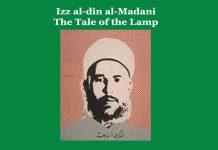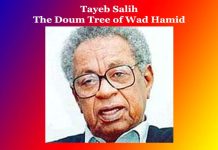R Tagore | The Cabuliwallah | An Analytical Study
R Tagore | The Cabuliwallah | An Analytical Study
R Tagore | The Cabuliwallah | An Analytical Study
The Cabuliwallah’ is a short story written by Rabindranath Tagore (1861-1941), a world-famous Indian Bengali litterateur. Filial love is the main theme of the story. The story is written in the first person.
Through this story, the author has explored the emotional relationship of a Cabuliwallah (an inhabitant of Kabul in Afghanistan) towards a little girl named Mini in Calcutta. Mini is the five-year-old daughter of the author. She is very talkative. She often bothers the author by asking a variety of incongruous questions to the author. One morning when the author was busy in writing a novel, the girl stole into the author’s room and began to ask questions and the author tried to answer. In the meantime, a Cabuliwallah was passing by the road. She noticed him through the window and shrieked out, “A Cabuliwallah! A Cabuliwallah!” The author feared that the Cabuliwallah would come and waste his time. Then the Cabuliwallah came into and greeted the author with a smiling face. Mini was overcome by terror as she thought that Cabuliwallah had borne two or three little children like her in his long bag. So out of fear she fled to her mother’s lap. The author made some purchases and talked about the Russians, the English and the Frontier policy. While leaving the place the Cabuliwallah offered some nuts, raisins, and almonds to the little girl, Mini. But the girl clung to the author as she feared the Cabuliwallah. That was their first meeting. The Cabuliwallah since then began to come to the house almost regularly either in the morning or in the evening. With the passing of time friendship developed between the Cabuliwallah and Mini. Little Mini used to prattle with him and the Cabuliwallah heard her and laughed with her. In those ways, the days passed. One day the author saw that the Cabuliwallah is being led away by two policemen. The author came to know partly from one and partly from another that the Cabuliwallah quarreled with a customer who denied to pay off his debt to the Cabuliwallah and being exasperated he struck him and consequently he was arrested. The Cabuliwallah was sent to prison. Eight years passed by. Everybody forgot the Cabuliwallah. Already Mini got matured to be married to. The author had arranged the marriage ceremony of her girl Mini. On that very morning, all of a sudden, the Cabuliwallah appeared at the author’s door. At first, the author could not recognize him but later on, he came to realize that the newcomer was none but the Cabuliwallah who was sentenced to prison for eight years. The Cabuliwallah said that he was released from jail last evening after a period of eight years imprisonment. The Cabuliwallah and the author had some talks. Then the Cabuliwallah wished to see the little girl. Then the author said that her marriage ceremony was going on so it was not possible to see her that day. He asked him to come another day. The Cabuliwallah then offered some presents to the author to give to Mini. The author accepted and was going to pay him for the things. Then the Cabuliwallah caught the author’s hand and said that he also had a child-like her in his homeland and he offered the thing to Mini reminding his own daughter. Saying this the Cabuliwallah had brought out a piece of paper bearing the impression of a little hand and said that he carried it about him as a token of his love and affection for his daughter. Then the author, realizing the mental condition of Cabuliwallah, sent for Mini. Mini could not but came in. The Cabuliwallah looked at her and said, “Little one, are you going to your father-in-law’s house?” Mini went back. The Cabuliwallah sat down on the floor with a deep sigh and recalled his own daughter in Kabul. Then the author took out a banknote and gave it to him saying, “Go back to your own daughter, Rahman, in your own country, and may the happiness of your meeting bring good fortune to my child.”
There are three Characters- Mini, Cabuliwallah and the author. Mini is the daughter of the author. She is five years old. She, like other children, is talkative and flirting. The author has portrayed her as a type for children. Her friendship with the Cabuliwallah is child-like on her part and from the side of the Cabuliwallah, this friendship is emotional.
The second character is Cabuliwallah. He is poor and lives in Kabul. Afghanistan. He is a peddler who does his business in Calcutta. He has a child of Mini’s age. His affection for the little Mini is emotional. Mini reminds him of his own daughter in Kabul. The present that he offers to Mini is a token of filial love for children. He is a pathetic character. He struck a customer being exasperated with him for denying him to pay off his debt. The third character is the author himself. He is a writer. As the author says he was busy writing his novel when the Cabuliwallah came first to his house. The author is very generous and kind to the poor as he gave the Cabuliwallah a banknote for which he had to curtail some of the festivities.
The author has employed the Subjective Method in narrating the story. In this method, the author becomes a character of his story and narrates the story in the first person.
The story, in Structure, is well one. The exposition is direct. The complication of the story begins with Mini’s meeting with the Cabuliwallah. The climax of the story reaches not while the Cabuliwallah is shown to be arrested by the police but during the marriage ceremony when the Cabuliwallah brings out a piece of paper bearing a hand impression of his little girl whom he left behind in Kabul.
The Setting of the story is consistent with the events and situation. The author gives a good deal of description of the atmosphere and manners of his characters. For example, the author gives a vivid imaginary picture of the mountains, peaks, and merchants carrying merchandise journeying downward towards the plain. He also gives a vivid description of the marriage festivities, the scene of Cabuliwalah being arrested and led by the police etc.
The Dialogue employed in the story is very logical as he uses them economically but all the dialogues have taken his story a step ahead and unfold the inner nature and motives of his characters. The dialogues of Mini may be called memorable as- she asked his father,
“What do you think, Father? Bhola says there is an elephant in the clouds, blowing the water out of his trunk, and that is why it rains!”
Again she asked his father, “Father! What relation is mother to you?”
The author has expressed his Philosophy of Life not directly but indirectly through the story and suggests that love and affection for children is natural to man.
The Language of the story is very simple as it is characterized by the use of simple, concrete, and formal words and phrases, free from complicated sentence construction and harsh imagery.
All the Qualities of a good short story as — unity of purpose, brevity, spontaneity and universality are present in it. The brevity is also maintained throughout the story as all the component elements of a good short story are employed in the story with the possible economy. Thus the universality is achieved by means of the reliable representation of the event. The story begins and ends with spontaneous logical order through proper stages. 0 0 0.
R Tagore | The Cabuliwallah | An Analytical Study
Read More: Premchand’s ‘Deliverance’: An Analytical Study
N. B. This article entitled ‘R Tagore | The Cabuliwallah | An Analytical Study’ originally belongs to the book ‘World Short Story Criticism‘ by Menonim Menonimus. R Tagore | The Cabuliwallah | An Analytical Study
Books of Literary Criticism by M. Menonimus:
- World Short Story Criticism
- World Poetry Criticism
- World Drama Criticism
- World Novel Criticism
- World Essay Criticism
- Indian English Poetry Criticism
- Indian English Poets and Poetry Chief Features
- Emily Dickinson’s Poetry-A Thematic Study
- Walt Whitman’s Poetry-A Thematic Study
- Critical Essays on English Poetry
- Tawfiq al-Hakim’s Novel: Return of the Spirit-An Analytical Study
- Tawfiq al-Hakim’s Novel: ‘Yawmiyyat Naib Fil Arayaf’-An Analytical Study
- Analytical Studies of Some Arabic Short Stories
- A Brief History of Arabic Literature: Pre-Islamic Period …
Books on Linguistics by M. Menonimus:
- A Brief History of the English Language
- Essays on Linguistics
- My Imageries
- Felicitous Expression: Some Examples
- Learners’ English Dictionary
Related Searches:
- Short Stroy Criticism
- The Indian English Short Story
- Individual and Society …
- ‘Deliverance’ by Premchand Analysis
- ‘Deliverance’ by Premchand Summary and Analysis
- ‘Deliverance’ a Short Story by Munshi Premchand
- Deliverance Character List
- Summary of Rabindranath Tagore’s ‘The Exercise Book
- Exercise Book
- The Cabuliwallah
- Rabindranath Tagore’s ‘The Cabuliwallah’: Summary and Analysis …











